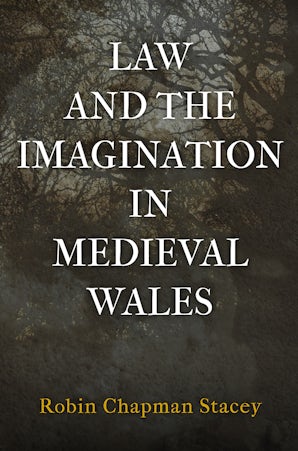
Law and the Imagination in Medieval Wales
by Robin Chapman Stacey
In Law and the Imagination in Medieval Wales, Robin Chapman Stacey explores the idea of law as a form of political fiction: a body of literature that blurs the lines generally drawn between the legal and literary genres. She argues that for jurists of thirteenth-century Wales, legal writing was an intensely imaginative genre, one acutely responsive to nationalist concerns and capable of reproducing them in sophisticated symbolic form. She identifies narrative devices and tropes running throughout successive revisions of legal texts that frame the body as an analogy for unity and for the court, that equate maleness with authority and just rule and femaleness with its opposite, and that employ descriptions of internal and external landscapes as metaphors for safety and peril, respectively.
Historians disagree about the context in which the lawbooks of medieval Wales should be read and interpreted. Some accept the claim that they originated in a council called by the tenth-century king Hywel Dda, while others see them less as a repository of ancient custom than as the Welsh response to the general resurgence in law taking place in western Europe. Stacey builds on the latter approach to argue that whatever their origins, the lawbooks functioned in the thirteenth century as a critical venue for political commentary and debate on a wide range of subjects, including the threat posed to native independence and identity by the encroaching English; concerns about violence and disunity among the native Welsh; abusive behavior on the part of native officials; unwelcome changes in native practice concerning marriage, divorce, and inheritance; and fears about the increasing political and economic role of women.